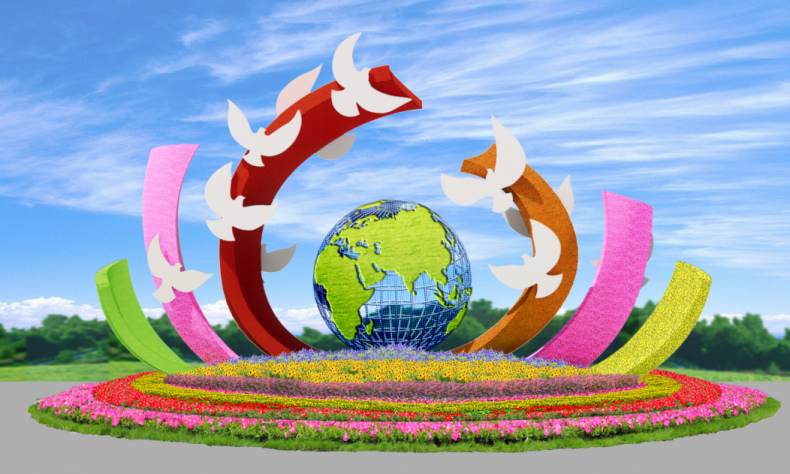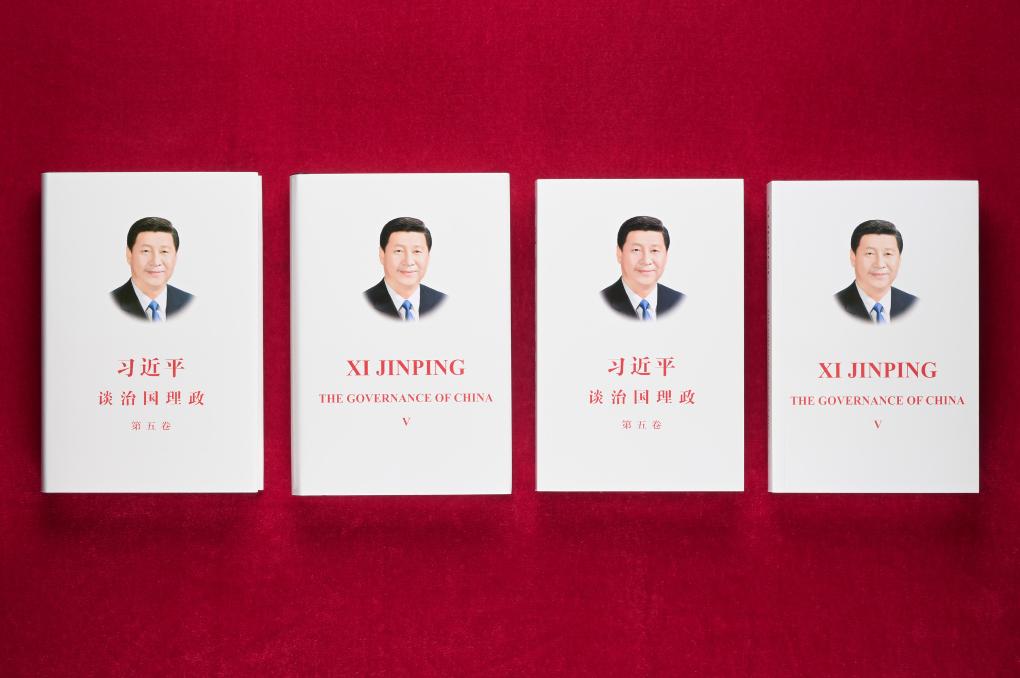Illuminating the Path Ahead

As a key component of the changes unseen in a century, we now see the collective rise of the great mass of developing countries.
Like many people around the world, be they China scholars, friends of China or students of Marxism, I have been looking forward to the publication of the fifth volume of Xi Jinping: The Governance of China and was very pleased to hear that it is now available.
The eagerness and interest with which this latest volume has been awaited and will be received reflects a number of things. Through the writings and speeches of President Xi Jinping one can gain a better understanding of China – where it is going and how it approaches the great issues facing humanity. This is related to the fact that, under Xi’s leadership, China is returning to the center of the global stage. But it does so, not as an aspiring new hegemon, and not following the old path of colonialism and hegemonism, which have caused, and continue to cause, so much bloodshed and suffering, but rather from a new and visionary paradigm.
Xi’s grand vision of a community with a shared future for humanity is welcomed by a majority of the world’s nations, particularly the Global South family, who have suffered for centuries under the iron heel of the Global North. Xi’s vision is welcomed precisely because it accords with the interests and needs of the people of every country.
As far back as 1848, German philosophers and revolutionary socialists Karl Marx (1818-1883) and Friedrich Engels (1820-1895), co-authors of The Communist Manifesto, wrote that, “In the national struggles of the proletarians of the different countries, they [the communists] point out and bring to the front the common interests of the entire proletariat, independently of all nationality.”
As the foremost proponent of Marxism for the 21st century, Xi has inherited, applied and developed this principle elaborated by Marx and Engels.
Historically, this development has passed through a number of distinct phases. Taking into account the fact that imperialism had completed the colonial division of the world, and that the modern national liberation movement was coming into being as the most powerful ally of the working class on a world scale, Vladimir Lenin (1870-1924) – founder of the Russian Communist Party – updated the slogan of “workers of the world unite” to also embrace the oppressed peoples. At the same time, faced with the fact that the Soviet Union was likely to remain the world’s sole socialist country, at least for a time, he advanced the concept of peaceful coexistence as an important component of the foreign policy to be pursued by a socialist state. Later, Zhou Enlai (1898-1976), then Chinese premier, in turn, faced with the fact that states with different social systems would continue to exist for a long historical period, raised peaceful coexistence from a policy to the level of theory, encapsulated and summed up in his famous Five Principles of Peaceful Coexistence.

Xi Jinping Thought on Diplomacy inherits and builds on this entire legacy. If, 70–plus years ago, the Five Principles of Peaceful Coexistence gave the socialist countries, and the newly independent countries just embarking on the road of building a new society, freedom to breathe and room to maneuver, today we face a qualitatively different situation.
As a key component of the changes unseen in a century, we now see the collective rise of the great mass of developing countries, which today we generally refer to as the Global South, with socialist China as the vanguard, an indispensable nation steadily advancing to the center of the world stage.
This therefore places the question of what kind of world should we build and how should we build it, not simply as a task on the agenda but rather as a task taken up for solution, and so this is precisely a key question to which Xi Jinping Thought addresses itself.
Around the time I first visited China, back in 1981, and prior to that, practically the first sight that people encountered as they entered the mainland from Hong Kong was the huge banner reading, “Long live the great unity of the peoples of the world!”
And just as Marx and Engels wrote about the “common interests of the entire proletariat, independently of all nationality,” for his part, Confucius (551 BC- 479 BC) famously advocated the great harmony of all under heaven.
It is by embodying these precepts of both scientific socialism and fine traditional Chinese culture and civilization, and proceeding from the theory of “adapting the basic tenets of Marxism to China’s realities and to its traditional culture”, that Xi has defined the strategic goal, the task taken up for solution, as the building of a community with a shared future for humanity.
Of course, some might say that this is just a phrase. And in the mouths of many politicians around the world that would most likely be the case. But in Xi’s case it represents the summation and acme of a whole body of continually developing theories and practices. In particular, it is the cumulative product of a whole series of initiatives, starting with the Belt and Road Initiative (BRI), and proceeding through a series of global initiatives on development, security and civilization. Together, these represent the building blocks of global peace, common prosperity, mutual respect and harmony, which, in turn, are the prerequisites for a sustainable community of shared future.
Xi is also clear that this cannot be realized solely through relations among states but rather must also embrace people-to-people diplomacy. In fact, he has gone so far as to stress that relations between peoples are the foundation and bedrock of good state-to-state relations. In this he inherits and builds on Mao Zedong’s conclusion that, “The people, and the people alone, are the motive force in the making of world history.” That is why Xi gives so much attention to people-to-people diplomacy, meeting people on his travels, keeping in contact with old friends even after decades, writing personal letters, and never forgetting China’s old friends and their family members and descendants.
Today, humanity has long since passed the point where its fundamental problems can be contained or resolved within national borders. Not all progressive people in the West realize it yet, but the issue is no longer whether one is for or against globalization, but whether to continue to go down the road of a globalization where the rich continue to get richer and the poor continue to get poorer on a global scale, as practiced by the ruling circles in advanced capitalist countries, or whether to pursue an equitable and inclusive globalization as championed by China. Likewise, the existential threats facing humanity, whether they be from the looming threat of climate catastrophe, the danger of nuclear war or of zoonotic pandemics, all show that a community with a shared future for humanity is a worthy goal, one that can be embraced and welcomed by the great majority of humanity. But even more fundamentally, it is increasingly becoming the very prerequisite for the continuation of human civilization and indeed survival, and most likely for the survival of many other forms of life on earth as well.
No country, no matter how rich or powerful, can solve the problems facing humanity and Mother Earth on their own, let alone with a “beggar my neighbor” attitude. Rather, it’s the case that we sink or swim together. Xi’s concept of a community with a shared future is the shoreline that humanity has to swim towards. The Governance of China is like a lodestar or lighthouse illuminating the way to a distant shore. That is why I am sure that this latest volume will be eagerly awaited, read, studied and discussed by people on every continent.
Keith Bennett is a senior China specialist and vice chair of Britain’s 48 Group Club.
 Facebook
Facebook
 Twitter
Twitter
 Linkedin
Linkedin
 Google +
Google +










